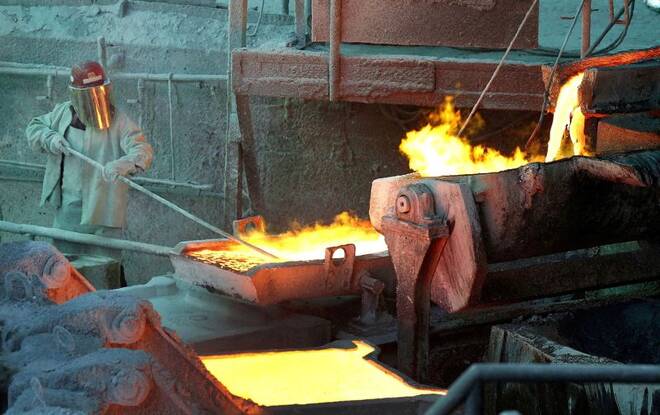Advertisement
Advertisement
Chile plans to raise copper mining royalties and reform tax system
By:
SANTIAGO (Reuters) -Chile's finance minister, Mario Marcel, on Friday introduced a tax reform bill that increases copper mining royalties on companies that produce more than 50,000 tonnes a year and raises taxes on high-income earners to fund the government's proposed social programs and reforms.
SANTIAGO (Reuters) -Chile’s finance minister, Mario Marcel, on Friday introduced a tax reform bill that increases copper mining royalties on companies that produce more than 50,000 tonnes a year and raises taxes on high-income earners to fund the government’s proposed social programs and reforms.
Chile is the world’s top copper producer and is home to global copper giants like Codelco, BHP, Anglo American Glencore and Antofagasta.
“This means an increase in revenue from royalties, an increase in state participation in mining income,” Marcel said. “But also ensuring the mining sector has enough income to encourage investment.”
A press release from the treasury department says the plan has two components. One is an ad valorem tax between 1% and 2% for companies that produce between 50,000 and 200,000 tonnes of fine copper a year and a rate between 1% and 4% for those that produce more than 200,000.
The other component is a rate between 2% and 32% on profits for copper prices between $2 and $5. Both components vary based on the price of copper.
Smaller copper producers will continue with the current system, Marcel added.
The bill aims to raise 4.1% of GDP over four years, with 0.7% going to a new guaranteed minimum pension fund.
The proposal also raises taxes on high-income earners, capital gains and introduces a new wealth tax for citizens with more than $5 million in assets.
Marcel noted Chile, with a tax collection rate of 20.7% of GDP, is below the OECD median of 34.7%.
“Historically, few countries have reached economic prosperity with a low tax load,” Marcel said, adding that 97 percent of taxpayers won’t be affected by the proposal.
The bill also tries to reduce tax exemption and evasion while giving tax breaks for rent and care for children under 2 and the severely dependent.
(Reporting by Natalia Ramos and Alexander VillegasEditing by David Goodman)
About the Author
Reuterscontributor
Reuters, the news and media division of Thomson Reuters, is the world’s largest international multimedia news provider reaching more than one billion people every day. Reuters provides trusted business, financial, national, and international news to professionals via Thomson Reuters desktops, the world's media organizations, and directly to consumers at Reuters.com and via Reuters TV. Learn more about Thomson Reuters products:
Did you find this article useful?
Latest news and analysis
Advertisement
